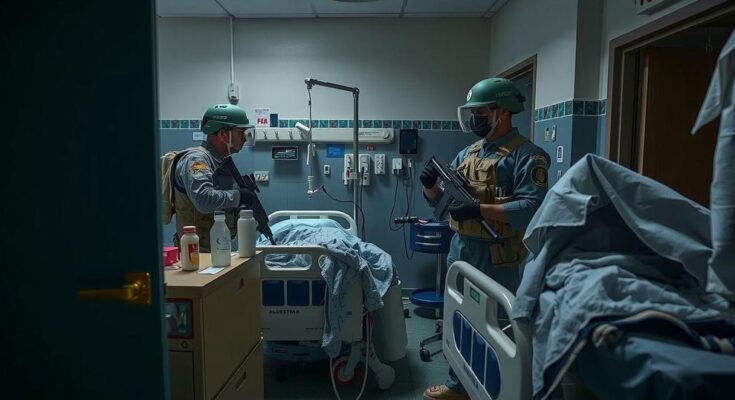Israeli military operations in Gaza continue to escalate, resulting in multiple casualties, including two medics killed in Lebanon. The humanitarian crisis in northern Gaza worsens, with the Palestinian Civil Defence requesting urgent international assistance. Iran and Turkey have taken diplomatic steps, reflecting the growing international response to the conflict.
The ongoing military engagement in the Gaza Strip has escalated as Israeli forces bombard multiple locations, resulting in significant casualties among Palestinian civilians. Just a day after a devastating attack that claimed 35 lives, more violence ensued in Gaza City and Jablia, with two additional Palestinians reported killed. The Palestinian Civil Defence has raised alarms, urging for international intervention due to a blockade that has left approximately 100,000 individuals without essential resources such as food, water, and medical assistance. In a related incident in southern Lebanon, Israeli forces conducted a raid on a healthcare facility in Bazouriyeh, leading to the deaths of two paramedics. Concurrently, Hezbollah launched an attack against an Israeli military installation in Haifa, indicating a broader regional conflict. Israel’s military further reported a ground operation that captured a Syrian national, accused of espionage on behalf of Iran, and a separate abduction of a Lebanese individual occurred. Iranian President Masoud Pezeshkian has issued a statement suggesting that a ceasefire could potentially influence the nature and intensity of Iran’s responses to Israeli actions. Meanwhile, Turkey has taken diplomatic steps by submitting a letter to the United Nations, with endorsements from 52 nations, demanding a cessation of arms supplies to Israel, involving significant countries such as Saudi Arabia, China, and Russia.
The current conflict in the Middle East has roots in a long-standing historical struggle between Israel and Palestine, exacerbated by regional alliances and geopolitical tensions. The humanitarian crisis in Gaza, marked by lack of access to basic services and ongoing military actions, attracts global attention and calls for intervention. The dynamics have extended beyond the borders of Israel and Palestine, drawing in regional actors such as Iran and Hezbollah, thereby complicating the situation further. The international community, through measures such as the UN letter from Turkey, displays a growing concern over the escalation of violence and the arms trade fueling the conflict.
In summary, the situation in the Middle East is deeply concerning, with escalating violence resulting in numerous civilian casualties and humanitarian crises in Gaza and Lebanon. Calls for international intervention are increasing as the conflict broadens and involves multiple state and non-state actors. The potential for diplomatic resolutions, including discussions of ceasefire, remains fragile against the backdrop of continuing hostilities and military operations.
Original Source: www.aljazeera.com




